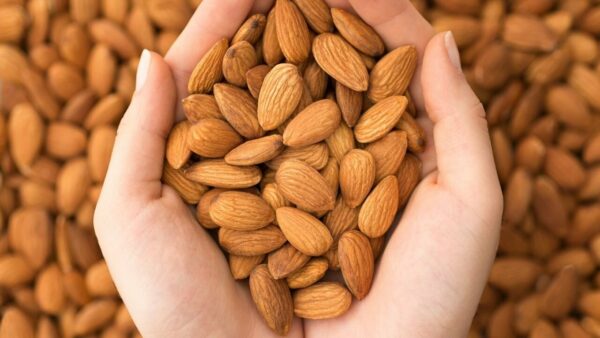If you are diagnosed with fatty Liver disease, it signifies that you have extra or unwanted fat in your liver this condition is increasing all over the world, affecting about 25% of the global population.
Although your liver typically has some amount of fat, if the amount increases, it may lead to an alarming situation and, if left untreated, may lead to severe and life-threatening liver diseases.
In addition, Fatty liver disease may be associated with other health conditions such as obesity, insulin resistance disorder, and diabetes. Therefore, it is imperative to be aware of the symptoms, causes, treatment, and prevention of Fatty liver disease.
What Is Fatty Liver Disease
Fatty liver disease is also known as hepatic steatosis in medical terms our liver is the second largest organ and is responsible for processing nutrients from food and drinks we ingest and filter the harmful substances.
When more than 5 to 10% of your weight, it is fatty liver. Fatty liver is categorized into two types non-alcoholic Fatty liver disease and Alcoholic fatty liver disease

Types Of Fatty Liver Disease
Fatty liver disease is of two types:
Alcoholic fatty liver disease – It happens due to heavy drinking.
Non-alcoholic fatty liver – It happens in people who are not heavy drinkers. The exact cause of non-alcoholic fatty liver disease or not known.
However, several other medical conditions such as diabetes and obesity may increase the risk of developing non-Alcoholic fatty liver disease.
Unlike other liver diseases, in non-alcoholic fatty liver disease, there is only a build-up of fat in the liver. Still, there is no damage to the organ, so you can take steps and reverse the condition before it becomes a serious health issue.
What Are The Symptoms Of Fatty Liver Disease?
In many cases, the symptoms of fatty liver disease may not be noticeable; however, you may experience pain or discomfort in the upper right side of the abdomen.
In some people, fatty liver disease progresses and develops complications such as liver scarring or liver fibrosis. Severe liver fibrosis is termed cirrhosis which is a potentially life-threatening condition. The symptoms of cirrhosis of the liver include:
- Weight loss
- Weakness
- Loss of appetite
- Fatigue
- Nosebleed
- Itchy skin
- Web-like cluster of the Blood vessels under the skin
- Abdominal pain
- Swelling of your legs
- Abdominal swelling
- Confusion
- Breast enlargement in males
What Causes Fatty Liver Disease?
Fatty liver develops when your body is unable to metabolize the fat efficiently or when your body produces too much fat. In both the cases, the excess of fat gets accumulated in the liver cells and leads to fatty liver.
You have more chance of developing fatty liver disease if you are:
- Postmenopausal female
- Asian or Hispanic
- High level of belly fat
- Obese
- Taking certain prescription medications such as tamoxifen, diltiazem, amiodarone, or steroids.
- Suffering from Diabetes, High blood pressure or High cholesterol, High triglyceride
- Have obstructive sleep apnea where the Airways are blocked that causes the breathing to stop and start during sleep.
- Heavy drinking
Less common causes of fatty liver disease include:
Rapid weight loss
- Pregnancy
- Infections such as Hepatitis C
- Exposure to certain process
Why Fatty Liver Disease Is Called Silent Killer?
Fatty liver disease, in most cases, does not cause any severe health issues and does not intervene in the normal functioning of the liver. In addition, our liver effectively regenerates and repair itself.
This is the reason that once liver damage begins, it takes long time to become noticeable, and by the time, damage is found, it is irreversible.
Fatty liver – is bad because in about 7 to 30% of people with fatty liver, the condition gets worse with time and progresses through the following three stages:
Steatohepatitis – Liver gets swollen, and its tissues are damaged.
Fibrosis – From where your liver is damaged, scar tissue is formed.
Cirrhosis of the liver – Healthy tissues are replaced by extensive scar tissue.
What Is Cirrhosis OF the Liver?
Severe liver damage leads to cirrhosis of the liver. It is the medical condition where the healthy liver tissues are replaced by hard scar tissue that slows the function of the liver. Eventually, the function of the liver is entirely blocked and leads to either liver cancer or liver failure.
The good news about fatty liver disease is that it may not cause any severe issue in people without any symptoms, and you can reverse fatty liver disease with lifestyle changes and prevent liver damage and cirrhosis.
What Is The Treatment For Fatty Liver Disease?
No medication is approved to treat fatty liver disease. More research is required in this field. However, by specific lifestyle changes, you can reverse fatty liver disease and prevent cirrhosis.
Lifestyle Changes To Reverse Fatty Liver Disease

Simple changes in your lifestyle can reverse Fatty liver disease. Below are a few steps you can take:
Weight loss – Talk to your healthcare provider to find out the best way to lose weight effectively. A few options include exercise, Diet, Weight Loss Medication, and Weight Loss Surgery. Even using three to five percent of your total body weight improves your liver health.
Get other health issues treated – It has been found that Fatty liver is linked with several Health conditions such as high cholesterol, diabetes, high triglycerides, sleep apnea, polycystic ovarian syndrome, underactive pituitary gland, and underactive thyroid gland. If you are suffering from these conditions, see your health care provider for proper diagnosis and treatment.
Make changes in your eating habits – To lower the amount of fat in your liver:
- Eat more fruits and vegetables
- Eat high fibre foods such as whole grain
- Eat more fish
- Limit the intake of sugar, salt, saturated and trans fats, and carbohydrates
- Quit alcohol
Do not take any medication without consulting your doctor.
Get vaccinated against hepatitis A and B virus. In addition, get a flu shot every year.
Prevention is better than cure. Therefore, practice a healthy lifestyle to prevent fatty liver disease and its complications.







